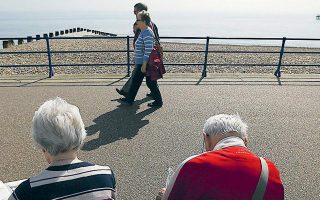Athens hotel prices drop 20%

Hotel prices in the Attica region, which includes the capital Athens, continue to face downward pressure as not only have visitors failed to show up but many prospective travelers have declared that they are ready to cancel their trips abroad if they have to wear masks or submit to a coronavirus test – never mind having to face quarantine.
According to the Hotel Price Index of online pricing platform Trivago, the average price of a hotel room in Athens has dropped just over 20 percent since last July, to €84 from €107, making Athens one of the six cheapest city destinations, on a par with Lisbon but more expensive than Moscow (€49), Warsaw (€56), Istanbul (€58) and Madrid (€78).
The five most expensive European destinations are Zurich (€168), London (€126), Paris (€125), Dublin (€119) and Reykjavik (€117).
The biggest declines in hotel rates were observed in Amsterdam (€140 to €98, 30%), Barcelona (€141 to €99, 29.8%), Dublin (€164 to €119, 27.4%) and Reykjavik (€156 to €117, 25%). Hotel prices in London and Istanbul, like Athens, dropped 20% year-on-year.
The apparent second wave of the pandemic is leading to new restrictions on travel all over Europe and many prospective travelers do not like it. A recent survey by market research firm YouGov shows that at least half of British, French and German tourists – three of the five most important markets for Greece in terms of earnings – would rather cancel plans than be subjected to testing and the mandatory use of face masks at their destinations, as well as quarantine once back.
The survey, which took place from July 13-23, showed that, among Germans who regularly travel abroad for their holidays, two-thirds will cancel their plans if they have to submit to a test. The same survey showed that half of regular French travelers will do so, and a similar percentage will do the same if they must wear masks in public. And the French are relatively unfussy: Two-thirds in Denmark, Germany, Sweden and the UK would not put up with having to wear masks in open spaces, and a similar percentage of Danes and Swedes would rather not travel than wear a mask in enclosed spaces, such as on public transport. Half the Germans and 60% of the British would agree to wear masks in enclosed spaces.





